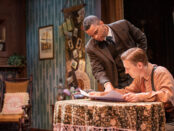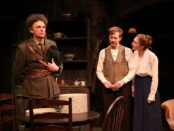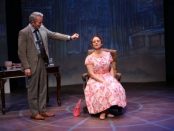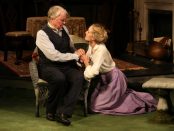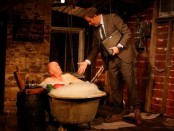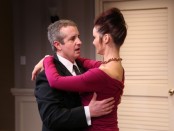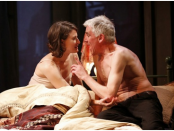Originally entitled "Francie Nolan," the same as the title character of her later "A Tree Grows in Brooklyn," but unrelated to that story except for sharing its Brooklyn setting, the play does incorporate anecdotes and scenes that would later appear in Smith’s novels. "Becomes a Woman" is uneven in tone, with a first act that is comedic, a second that is melodramatic, and a final act that is dramatic. On the one hand, the play is now a period piece depicting strict mores and values that have loosened up a great deal; on the other hand, much of its cavalier treatment of women is still unfortunately true today. While the first two acts resemble a great many films and plays of the 1930’s concerning fallen women, it is the third act which is progressive and ahead of its time, so much so that it may have scared off the all-male producing fraternity of those days. While the women are beautifully written, the male characters are undeveloped and not believable. As a result, the acting is the same with the best performances by the actresses and some unreal work by the men.
[more]


